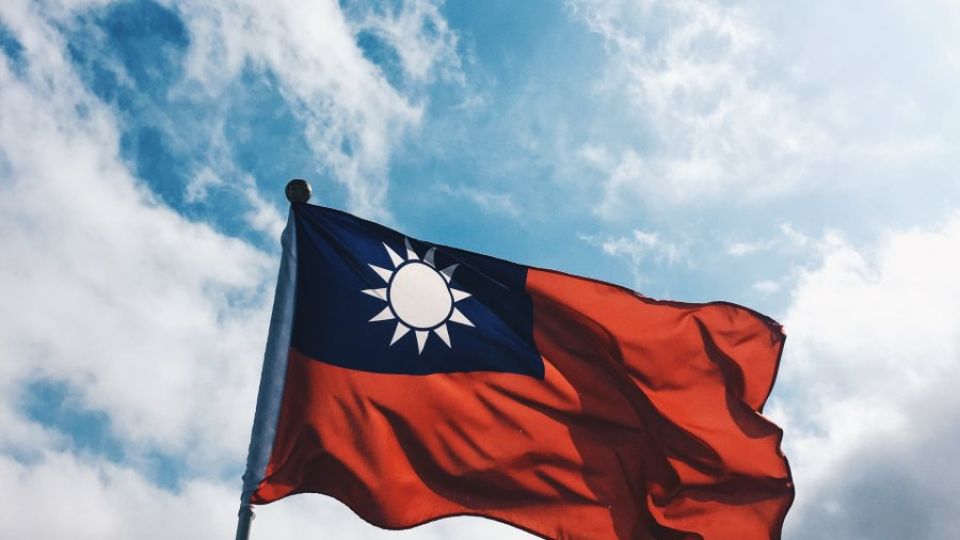December 14, 2023
TAIPEI – After having worked under Taiwan’s first woman president for six years – including two as premier – Taiwanese Vice-President Lai Ching-te has picked a woman to be his running mate for the 2024 presidential election.
This is because he sees the advantages of teaming up with a female leader.
“From the way (President) Tsai Ing-wen leads, we can see the resilience of female leaders,” said Mr Lai, the presidential candidate for the ruling Democratic Progressive Party (DPP), at a September event.
They are not afraid of difficulties and challenges, have the ability to manage risks, and are also inclusive in hiring people or promoting policies,” he added.
In November, Mr Lai officially announced Ms Hsiao Bi-khim, most recently Taiwan’s de facto ambassador to Washington, to be his vice-presidential pick.
Dr Ko Wen-je, presidential candidate of the smaller Taiwan People’s Party (TPP), also picked a woman to be his running mate – legislator Cynthia Wu, whose family is a major shareholder of Taiwanese conglomerate Shin Kong Group.
And before Foxconn billionaire Terry Gou withdrew from the presidential race on Nov 24, his running mate was veteran actress Tammy Lai.
Taiwan’s other main opposition Kuomintang (KMT) is the only party to have selected a man: fiery media personality Jaw Shaw-kong to run alongside New Taipei Mayor Hou Yu-ih.
Still, with two of the three vice-presidential candidates being women, analysts said it is a reflection of the island’s continually high representation of women in politics.
This is helped too by Ms Tsai’s feat of twice being elected on her own steam, unlike other women leaders in Asia who often are wives, daughters or sisters of male leaders.
Ms Tsai has to step down at the end of her second term, under constitutional limits.
Female political participation is also at an all-time high, partly helped by a long tradition of gender quotas in elections. Women account for 42.5 per cent of Parliament, while the proportion of female local government heads has reached a historic 56.3 per cent.
Taiwan’s gender quotas stipulate that women must get one out of every four seats in electoral districts at the local elections, as well as half of the seats allocated to political parties based on their overall performance in the legislative elections.
But while gender activists see such trends as a positive sign, they remain cautious about jumping to the conclusion that Taiwan’s political scene has truly become more progressive when it comes to gender equality.
“It should always be celebrated that there are women going for top roles in government, but we should remember that the vice-president is more of a supplementary position to the president,” said Ms Christina Chen, managing director of Awakening Foundation, which promotes gender equality.
“Would Ms Hsiao or Ms Wu have any real power if they get voted into office? That remains to be seen.”
The vice-president has little formal power, but is the first in line to succeed the president. Two vice-presidents in the past succeeded to the presidency upon the presidents’ deaths: Yen Chia-kan served out the remainder of Chiang Kao-shek’s term upon the latter’s death in 1975, while Lee Teng-hui became president when Chiang Ching-kuo died of a heart attack in 1988.
Ms Chen added that there has been no talk yet if either of the two vice-presidential candidates would be able to follow in the footsteps of Ms Tsai and become a future president.
“Take Ms Hsiao, for example. She has a good reputation in the US and has a wealth of experience in foreign policy as well as in domestic affairs, and would naturally be seen as a strong successor. But that idea hasn’t really been discussed yet,” she told The Straits Times.
When Ms Tsai first ran for president in 2016, she was the target of sexism and faced personal attacks that her male counterparts rarely suffer.
As a single woman who is childless, she was criticised across the political spectrum as “emotional” and incapable of understanding the needs of parents.
During this election campaign, Ms Hsiao has also faced the brunt of sexist comments.
At a November press conference, some KMT members remarked that she would merely be a “scorned woman in the back of the palace” if she were to become vice-president.
Said Ms Chen: “Taiwan is a patriarchal society, so these things will keep popping up even though it is often promoted as one of Asia’s most progressive societies.”
Despite a high level of female political participation overall, the proportion of women in Ms Tsai’s Cabinet is also considerably lower, at around 16 per cent.
“The higher you go, the fewer women there are,” added Ms Chen, noting that Taiwanese women, and not men, are usually expected to give up their careers to take primary responsibility for childcare.
“That’s why it’s not unusual for women in top-level positions to be single. Ms Wu is married and had a child earlier this year, but that would not be a typical case for Taiwan,” she said.
Political scientist Ma Chun-wei from Taipei’s Tamkang University noted that all the vice-presidential picks were made to make up for any perceived shortfalls of the presidential candidates.
He said Ms Hsiao’s strong foreign policy experience is a boon for the Lai campaign, while KMT hardliner Jaw appeals to party supporters, many of whom prefer friendlier ties with China and are sceptical of Mr Hou because of his native Taiwanese background.
Dr Ko, meanwhile, has been criticised for making sexist comments in the past, making him unattractive to female voters, added Assistant Professor Ma.
In 2018 while Dr Ko was Taipei mayor, he commented at a forum that Taiwanese women not wearing make-up “go outside and scare people”.
Prof Ma said: “Besides the fact that Wu comes from a rich family and could help with funding his campaign, she was clearly chosen to help boost his popularity among women voters. Political campaigners care less about gender than about how best to win.”


